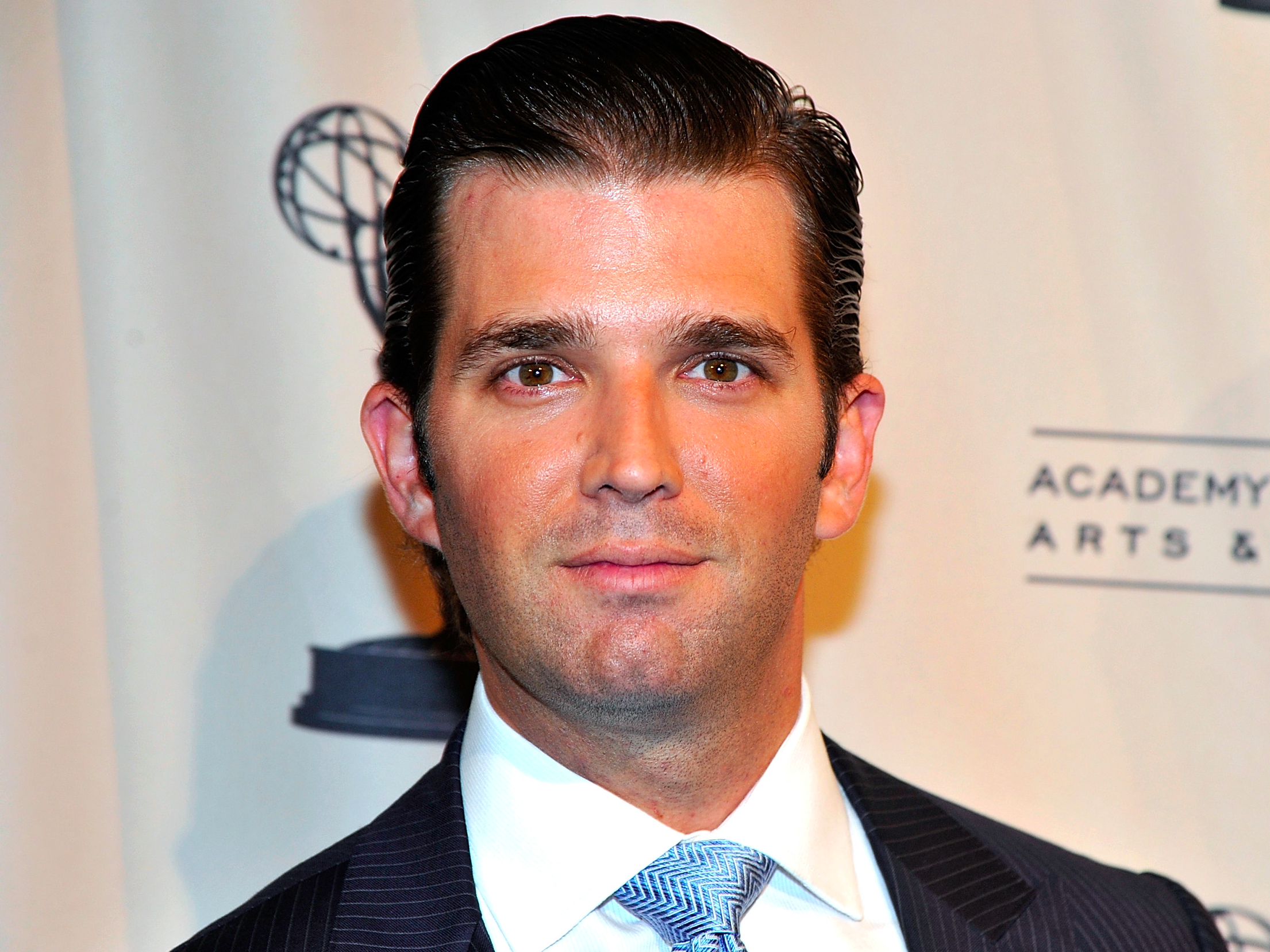In preparing to meet with a Kremlin-linked attorney during the 2016 US presidential campaign, Donald Trump Jr. was reportedly told in an email that damaging information he was expecting to receive about Hillary Clinton was part of a Russian effort to help his father’s campaign.
A report from The New York Times on Monday night cited three people who had knowledge of the email, which the paper said was sent by Rob Goldstone, a music publicist who represents the son of a wealthy Azerbaijani-Russian developer and is friendly with the Trump family.
The Times’ sources said Goldstone’s message indicated Russia was the source of the damaging information.
Alan Futerfas, Trump’s attorney, said the new report was “much ado about nothing.”
"During this busy period, Robert Goldstone contacted Don Jr. in an email and suggested that people had information concerning alleged wrongdoing by Democratic Party front-runner, Hillary Clinton, in her dealings with Russia," Futerfas said in a statement. "Don Jr.'s takeaway from this communication was that someone had information potentially helpful to the campaign and it was coming from someone he knew. Don Jr. had no knowledge as to what specific information, if any, would be discussed."
The Times reported over the weekend that Trump met with the lawyer, Natalia Veselnitskaya, last year, weeks after his father had won enough delegates to secure the Republican presidential nomination. Trump was joined at the meeting by Jared Kushner, his brother-in-law, and by Paul Manafort, the campaign manager at the time. Veselnitskaya has strong ties to the Kremlin. She was married to a former deputy transportation minister of the Moscow region, and her clients have included Russian state-owned businesses.
If the information in The Times' latest report is true, it "indicates that the Trump campaign certainly knew that the Russian government was working to help elect Donald Trump," said Jens David Ohlin, an associate dean at Cornell Law School who is an expert on criminal law.
In Ohlin's view, the development meant Trump and his associates could no longer credibly deny that Russia meddled in the election.
"They knew it and hoped to benefit from it," Ohlin said. "And they did."
Susan Hennessey, a contributor to the website Lawfare who previously served as general counsel at the National Security Agency, said on Twitter that the latest reports on Trump's meeting with Veselnitskaya constituted a smoking gun.
The meeting occurred before a series of hacked Democratic National Committee emails were released as part of Russia's efforts to interfere in the election.
But, according to a series of New York Times reports, Trump still accepted the meeting with the intention of accruing damaging information against the Clinton campaign.
Claire Finkelstein, the faculty director of the Center for Ethics and the Rule of Law at the University of Pennsylvania, said the emerging picture made out "a very strong case of collusion, both in a legal and a moral sense."
Trump's statements about the nature of the meeting have changed as new reports have emerged.
In a statement issued to The Times on Saturday, Trump said it was a "short introductory" meeting that focused on an adoption program that Russian President Vladimir Putin had cut off as a retaliatory measure against the Magnitsky Act, which blacklisted Russians suspected of human-rights abuses. He did not mention Clinton.
Trump released a second statement, however, after The Times reported that he had met with Veselnitskaya with the goal of obtaining damaging information on Clinton.
"After pleasantries were exchanged, the woman stated that she had information that individuals connected to Russia were funding the Democratic National Committee and supporting Ms. Clinton," the statement said.
"Her statements were vague, ambiguous, and made no sense. No details or supporting information was provided or even offered. It quickly became clear that she had no meaningful information."
Trump said she steered the conversation to the adoption program and the Magnitsky Act.
"It became clear to me that this was the true agenda all along and that the claims of potentially helpful information were a pretext for the meeting," he said. It's unclear whether Veselnitskaya actually provided damaging information about Clinton.
Russia-related investigations have been ongoing in both houses of Congress and at the FBI, where special counsel Robert Mueller has been overseeing the expansive inquiry into Russia's interference in the election and possible collusion with the Trump campaign.
